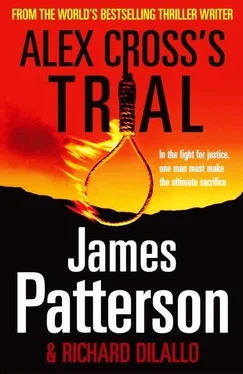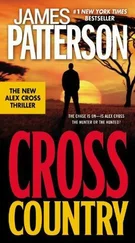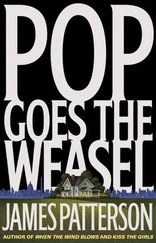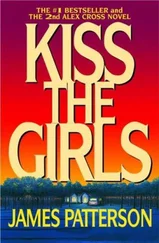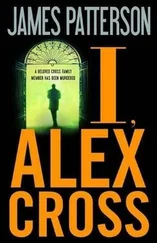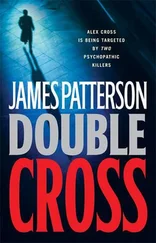“Look at this!” Moody exclaimed, holding a photo up to the light.
I came up beside her. There was her brother Hiram, dead on the ground, with a rope around his neck. His grinning killers each had a foot on his body, as if he were a prize lion they’d slain on safari.
L.J. pointed to the man on the end. “I’ll be damned if that ain’t Lester Johnson.”
I almost stopped breathing. “And now he sits on our jury.”
Then I recognized the man beside him. It was Jacob, Jacob Gill, with his foot resting on Moody’s dead brother. I felt my eyes filling.
Scooter Willems was nothing if not thorough. Everyone who’d ever had a hand in a lynching in this part of Mississippi had been assiduously recorded, their faces plainly recognizable. Some of the lynchings were of victims I’d heard about, others were news to us.
The horror increased with just about every picture. Before we were through, we’d seen the faces of many prominent Eudora citizens enjoying a night out, a night of murder and mayhem.
What a record of guilt! What amazing evidence! I couldn’t take the pictures down fast enough.
“Just put ’em all in the box,” I said. “We need to get out of here.”
“No, y’all can stay,” I heard.
THE BLACK CURTAIN was yanked aside, and the studio flooded with light. At first I couldn’t make out who they were, but there were five of them. Their torches were much brighter than our lantern, and they dazzled us.
“I don’t recall inviting any of you folks here,” a voice said. That high nasal whine had to be Scooter Willems’s.
As he moved his torch I saw them all.
Two men with guns whom I didn’t recognize.
Phineas Eversman, chief of police.
And Senator Richard Nottingham, Elizabeth’s husband.
“Go ahead and finish packing up,” said Nottingham, waving his pistol. “Saves us having to do it.”
Another man stepped into the cabin. “Yeah, y’all get to work, would you?” I knew that voice. And that face. It was Jacob Gill.
“’Preciate you gathering ’em up for us, Ben,” he said. “We were just gonna have ourselves a little evidence – burnin’ party.”
“We knew we’d find you here,” Phineas said with a smirk on his face.
L.J. growled, “How did you know? Who the hell told you we were comin’ here?”
There was a silence, then the others looked at Richard Nottingham. Finally he said, “My wife.”
The words stabbed me in the heart. I felt my throat closing and thought I might be sick.
“Elizabeth was spying for me. She told us every word you ever said, Corbett. She’s a good girl. Thanks for keeping us up to date. It was damn useful to Maxwell Lewis.”
Phineas took the box of photographs from Moody. One of the pictures caught his eye. “We don’t need this one,” he said.
He handed it over to me. “In case you want a souvenir.”
It was a picture of me – half naked, hanging from a lynching tree.
Scooter did a fine job with the picture. The detail was crisp; you could see every leaf on the tree. The dog licking my bloody foot, the flies swarming over my face.
“You always took a nice picture, Ben,” said Jacob Gill.
“ALL RIGHT NOW, Ben, we tried your plan, and you might say it didn’t work out so well. So now we’re going to try my plan.”
Jonah was not in the mood to butter me up.
“You know those photographs would have worked,” I said bitterly. “All right, all right, tell me your plan.”
“Well, it’s not quite as audacious as yours. Matter of fact, it’s very logical, very well thought out.”
“Damn it, just tell us,” L.J. said.
“Tomorrow,” Jonah said, “I want Ben to give the summation to the jury.”
L.J. didn’t hesitate a beat before answering, “That is a fine idea.”
“No, it isn’t,” I said. “I was there on the night of the murders. I’m a witness but you’ve chosen not to put me on the stand. You’re the one who’s been telling them the story of these crimes all along. Why change now?”
“You know why,” said L.J.
“Because I’m white?” I said. “That’s no reason!”
“It never hurts,” Jonah said with a faint smile. “Look, you come from here,” he explained. “You know these people. The judge is your father. These jurors will trust you more than they will me. And not because you’re white – because you were there. You can give a summation that comes from your heart. For God’s sake, you’ve been lynched yourself. You have to tell them a story, Ben. They need to hear it from you.”
I dreaded the truth in what he was saying. The next thing he said cinched it for me:
“I tried the case. I fought the case. I pled the case. But all along, even before I got here, it was always your case, Ben.”
IT LOOKED AS IF half of America had come to tiny Eudora for the conclusion of the White Raiders Trial.
Outside the courthouse that morning, hundreds and hundreds of spectators jammed the town square. Little boys had climbed trees for a better view of the action. Photographers muscled their tripods through the crowds, jostling for the best angles. A few of the more enterprising had bought out Russell Hardware’s entire stock of ladders to get an over-the-heads-of-the-crowd view.
Judge Everett Corbett had petitioned Governor Vardaman for state militiamen from Jackson to keep order. The soldiers had set up temporary wooden fences along the sidewalk in front of the courthouse to control the spectators who’d been flooding into Eudora by train, carriage, horseback, and on foot.
Inside the courtroom there was no question who was in control: Judge Everett Corbett.
During the course of the trial, he had expelled four colored women from the gallery for reacting too loudly. He had found three reporters in contempt of court for referring in unflattering terms to his dictatorial ways. And he had sent an old colored man to jail for shouting, “The Lord hates a liar!” during one defendant’s testimony.
The first thing my father did on the trial’s last morning reaffirmed his imperial status.
“Now we are ready to deliver this case to the jury,” he said. “The testimony has been passionate on both sides. Tempers have run high. Outside interest has been remarkable by any standard. And thus, gentlemen of the jury, we have come to the crux of the matter. You have to let the facts speak for themselves. You will now hear from the prosecutor, Mr. Curtis, his last and best argument about how you’ll decide. Then you’ll hear the same from Mr. Lewis. And finally, it will be entirely up to you, the jury, to make your decision, as the framers of the Constitution intended. Mr. Curtis?”
Jonah rose with an impassive face. “Your Honor, the jury has heard quite a lot from me in this trial. More than enough, I think. So I’m going to let my colleague Mr. Benjamin Corbett deliver the summation for the state.”
I GOT TO MY FEET, a little wobbly in the legs. The dumb-founded faces of my father, Loophole Lewis, and his three murdering clients gave me at least some pleasure.
It took my father only a moment to make the calculation: I had the right to speak, and there was nothing he could do about it. He smiled, crossed his arms, and sat back in his chair.
“I wondered if we were ever going to hear from Counselor Corbett,” he said. “Of course, as his father, I have heard a great deal from him over the years, and I look forward to sharing that pleasure with the rest of you.”
Appreciative laughter rolled through the room. I had no choice but to smile and try for a little joke of my own. “And, of course, as the proud son of my father, I can only say I have done at least as much listening over the years as talking, ” I said. “I have learned a great deal that way.”
Читать дальше
